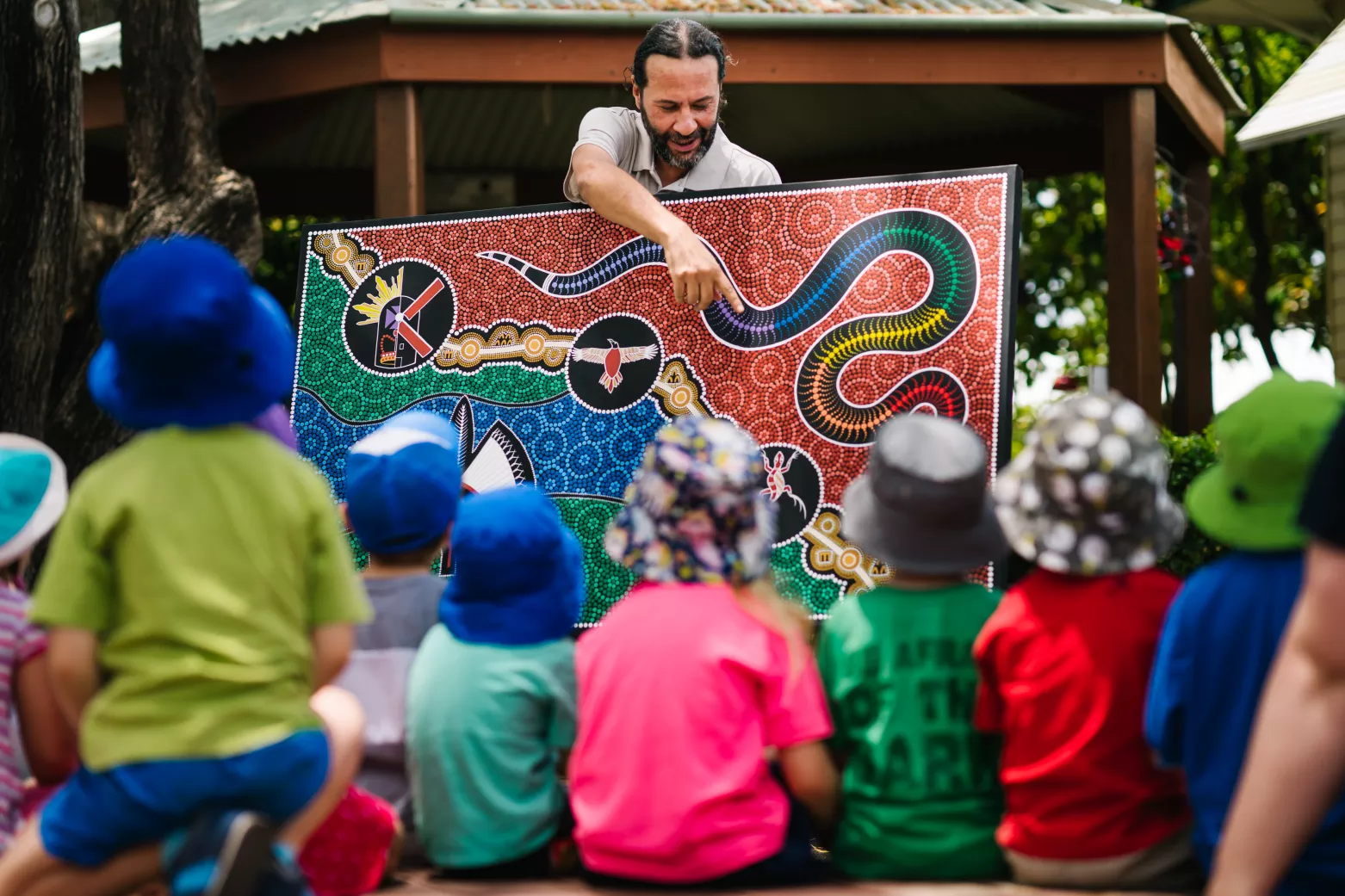- Home
- BELONGING, BEING & BECOMING - THE EARLY YEARS LEARNING FRAMEWORK
- (EYLF) PRINCIPLES
- (EYLF) Aboriginal and Torres Strait Islander perspectives
Table of contents
- BELONGING, BEING & BECOMING - THE EARLY YEARS LEARNING FRAMEWORK
- (EYLF) INTRODUCTION
- (EYLF) A VISION FOR CHILDREN'S LEARNING
- (EYLF) ELEMENTS OF THE EARLY YEARS LEARNING FRAMEWORK
- (EYLF) EARLY CHILDHOOD PEDAGOGY
-
(EYLF) PRINCIPLES
- (EYLF) Secure, respectful and reciprocal relationships
- (EYLF) Partnerships
- (EYLF) Respect for diversity
- (EYLF) Aboriginal and Torres Strait Islander perspectives
- (EYLF) Equity, inclusion and high expectations
- (EYLF) Sustainability
- (EYLF) Critical reflection and ongoing professional learning
- (EYLF) Collaborative leadership and teamwork
- (EYLF) PRACTICES
- (EYLF) THE EARLY YEARS LEARNING FRAMEWORK PLANNING CYCLE
- (EYLF) LEARNING OUTCOMES
- (EYLF) GLOSSARY OF TERMS
- (EYLF) REFERENCES
Need help using the guide? Visit our help section.
(EYLF) Aboriginal and Torres Strait Islander perspectives

Providing opportunities for Aboriginal and Torres Strait Islander children to see themselves, their identities and cultures reflected in their environment is important for growing a strong identity. Embedding Aboriginal and Torres Strait Islander perspectives in all educators’ philosophy and practice is a key tool to advance Reconciliation. This also contributes to Closing the Gap commitments and fulfilling every Australian child’s right to know about Australia’s First Nations’ histories, knowledge systems, cultures and languages. Embedding Aboriginal and Torres Strait Islander perspectives is a shared responsibility of approved providers, educators, and other professionals working in early childhood educational settings, regardless of whether Aboriginal and Torres Strait Islander children and families are enrolled in that setting.
Aboriginal and Torres Strait Islander peoples are the longest surviving Indigenous culture in the world and the custodians of this land. Their knowledge systems, traditions, ceremonies, lore and culture have survived for over 60,000 years. Relationships and continual connections to Country and community are at the heart of who they are and the contributions of Aboriginal and Torres Strait Islander people – past and present – should be acknowledged and valued in children’s learning.
Educators think deeply and seek assistance where possible, through engaging with Aboriginal and Torres Strait Islander people, about how to embed Aboriginal and Torres Strait Islander perspectives in the philosophy of the setting, their planning and implementation of curriculum. They have a responsibility to create culturally safe places, working in intercultural ways through pedagogy and practice. An intercultural space is created when educators seek out ways in which Western and Aboriginal and Torres Strait Islander knowledge systems work side by side.
Educators grow their knowledge of kinship systems and cultural connections in their local communities so they can build engaging reciprocal relationships between early childhood settings and community. Acknowledging the strengths and capabilities of Aboriginal and Torres Strait Islander families while supporting wellbeing assists in reinforcing and affirming a positive sense of identity for their children.
The history and culture of Aboriginal and Torres Strait Islander peoples is respectfully and truthfully reflected through community involvement and culturally sensitive practices. Embedding Aboriginal and Torres Strait Islander knowledges and perspectives encourages openness to diverse perspectives, enhances all children’s experiences and assists in the authentic advancement of Reconciliation. It is a commitment to children learning about what has come before and working together for what is to come.